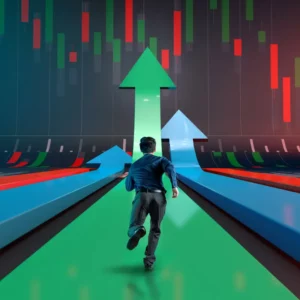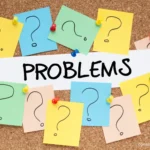40 Frequently Asked Questions About Forex Trading
Forex trading, also known as foreign exchange trading, has gained significant popularity worldwide. As an investor, understanding the intricacies of this dynamic market is crucial. Here are 40 frequently asked questions about forex trading, providing detailed answers to help you navigate this exciting financial realm with confidence.
Forex Trading Fundamentals: 40 Crucial Questions and Answers
1. What Is Forex Trading?
Forex trading involves buying, selling, and exchanging currencies in the foreign exchange market to capitalize on price fluctuations.
2. How Does Forex Trading Work?
It operates through a decentralized global network of banks, financial institutions, and individual traders. Participants trade one currency for another, aiming to profit from exchange rate changes.
3. What Are the Main Currency Pairs in Forex?
Major currency pairs include EUR/USD, USD/JPY, GBP/USD, and USD/CHF, known for high trading volumes and liquidity.
4. What Are the Best Times to Trade Forex?
The best times are during periods of high market activity, such as the London, New York, Tokyo, and Sydney sessions.
5. What Is a Pip?
A pip (percentage in point) is the smallest unit of measurement in forex trading, representing the fourth decimal place in most currency pairs.
6. How Can I Start Trading Forex?
Open a trading account with a reliable broker like IC Markets, deposit funds, and choose a trading platform.
7. What Is Leverage in Forex?
Leverage allows traders to control larger positions with a smaller amount of capital, magnifying potential profits and losses.
8. What Is a Stop Loss Order?
A stop-loss order is a risk management tool that automatically closes a trade at a predetermined level to limit potential losses.
9. What Is a Take Profit Order?
It is an instruction to close a trade at a specific level to secure profits.
10. What Are the Common Strategies in Forex Trading?
Common strategies include trend following, range trading, breakout trading, and scalping.
11. What Is Fundamental Analysis in Forex?
It involves evaluating economic indicators, news, and geopolitical factors to make trading decisions based on a currency’s underlying fundamentals.
12. What Is Technical Analysis in Forex?
Technical analysis involves studying historical price charts, patterns, and indicators to identify potential trading opportunities.
13. What Is a Trading Platform in Forex Trading?
Software that allows traders to execute trades, access real-time market data, and analyze charts and indicators.
14. How Do I Manage Risk in Forex Trading?
Use techniques such as position sizing, setting stop-loss orders, and diversifying your portfolio to control potential losses.
15. Can I Trade Forex with a Small Account?
Yes, but manage risk carefully and choose an appropriate leverage ratio.
16. What Is a Margin Call?
A margin call occurs when a trader’s account balance falls below the required margin level, prompting the broker to request additional funds.
17. What Are the Most Common Mistakes Made by Forex Traders?
Common mistakes include excessive trading, emotional trading, failure to use stop-loss orders, and lack of risk management.
18. What Are the Advantages of Forex Trading?
Advantages include high liquidity, 24/5 market access, profit potential in rising and falling markets, and the ability to trade with leverage.
19. Are There Risks Involved in Forex Trading?
Yes, including potential loss of capital due to market volatility, leverage, and economic factors.
20. Can I Trade Forex on Mobile Devices?
Yes, most brokers offer mobile trading apps for smartphones and tablets.
21. How Can I Improve My Forex Trading Skills?
Continuous learning, practice with demo accounts, keeping a trading diary, and analyzing your trades.
22. What Are the Essential Tools in Forex Trading?
Economic calendars, news feeds, charting software, and trading calculators.
23. What Is a Forex Demo Account?
Allows traders to practice with virtual money in a simulated environment without risking real funds.
24. How Can I Develop a Profitable Forex Trading Plan?
Set clear objectives, define risk tolerance, choose appropriate strategies, and implement effective money management techniques.
25. Is Forex Trading a Game?
No, it requires analysis, strategy, risk management, and disciplined decision-making.
26. Can I Do Forex Trading Part Time?
Yes, the market is accessible 24 hours a day, but dedication and continuous learning are essential.
27. What Is a Forex Signal Service?
Provides trade recommendations or alerts based on analysis from professional traders or automated systems.
28. What Is Slippage in Forex Trading?
The difference between the expected price of a trade and the executed price, often occurring during high volatility or low liquidity.
29. How Can I Choose a Reliable Forex Broker?
Consider factors like regulation, reputation, trading platforms, customer support, fees, and available trading instruments.
30. What Is a Trading Diary and Why Is It Important?
A record of trades, including entry and exit points, reasons, and emotions, helping analyze performance and identify improvement areas.
31. Can I Automate My Orders in Forex Trading?
Yes, using Expert Advisors (EAs) or trading robots to execute trades based on predefined rules.
32. What Are the Different Types of Orders in Forex Trading?
Market orders, limit orders, stop orders, and trailing stop orders, each serving a specific purpose.
33. How Do Central Banks Influence Markets?
Through monetary policy decisions, changes in interest rates, and foreign exchange market interventions.
34. What Are the Costs in Forex Trading?
Include spreads (the difference between buy and sell prices), commissions, overnight swap fees, and transaction fees.
35. What Are the Qualities of a Successful Trader in Forex Trading?
Discipline, patience, continuous learning, adaptability, and emotional control.
36. Can I Trade Forex Without a Strategy?
Having a strategy is crucial for consistent success; random trading is akin to gambling.
37. How Can I Stay Up to Date with News and Analysis in Forex Trading?
Follow financial news sites, subscribe to economic calendars, and join trading communities and forums.
38. Is It Possible to Make a Living in Forex Trading?
Some traders do, but it requires substantial knowledge, experience, discipline, and risk management.
39. How Can I Deal with Losses in Forex Trading?
Accept losses as part of the process, learn from them, and avoid emotional trading. Proper risk management should make losses manageable.
40. Where Can I Find Educational Resources About Forex Trading?
Online courses, trading books, webinars, and educational content from brokers and financial websites.
Conclusion
Forex trading offers a unique opportunity to participate in the global foreign exchange market. Understanding the fundamentals, applying effective strategies, managing risk, and continually improving your skills are key to navigating the forex market confidently. Approach trading with discipline, patience, and a long-term perspective to increase your chances of success.


























